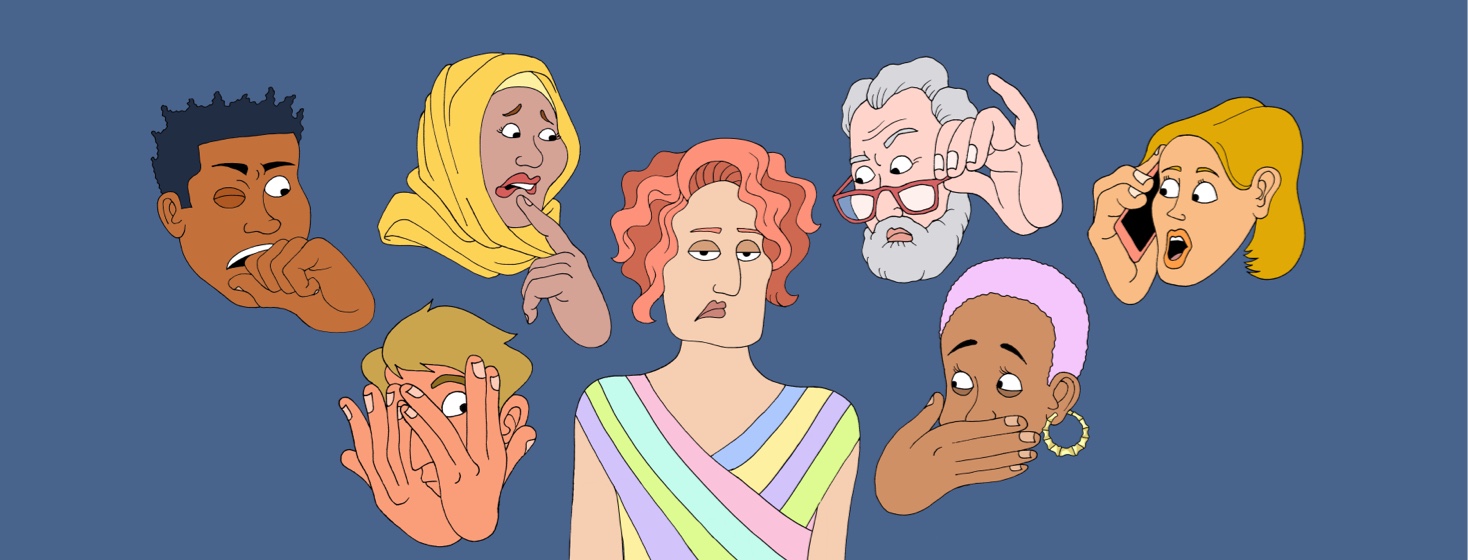Navigating the Shadows of Narcolepsy Stigma
Living with narcolepsy is a unique and often misunderstood journey, marked by the ever-present stigma that infiltrates various aspects of our lives. Unlike many other chronic conditions, narcolepsy doesn't come with visible marks or physical impairments, making it an invisible, hidden battle that is frequently underestimated and misconstrued. Some doctors prescribe people with narcolepsy medications for other conditions, like ADHD, with similar symptoms.
Featured Forum
View all responsesStigma in healthcare is an uphill battle
Imagine walking into a doctor's office, carrying the weight of relentless exhaustion and disrupted sleep, desperately seeking answers about your narcolepsy. Unfortunately, this journey is often met with skepticism and dismissive attitudes. Even the most educated medical professionals with significant knowledge about narcolepsy as a serious condition still hold misconceptions that can delay diagnosis and hinder access to crucial medical treatments.
The silent struggle of stigma in education
Now, picture being a student with narcolepsy. The constant struggle to stay alert in class and absorb information takes a toll on your academic performance. However, opening up about narcolepsy can lead to a different kind of challenge – social stigma.
Revealing your narcolepsy to classmates can result in mockery, misunderstanding, or exclusion. The hidden nature of the condition can lead others to perceive it as an excuse rather than a genuine medical condition. This forces students to hide their symptoms, worsening academic difficulties and perpetuating the cycle of stigma.
Stigma in relationships puts a strain on bonds
Living with narcolepsy can also strain personal relationships. The unpredictability of cataplexy attacks, daytime sleepiness, and the overall impact of narcolepsy symptoms on daily life can be challenging for both those of us with narcolepsy and our loved ones.
Friends and family members may struggle to understand the depths of this condition's effects. Some feel uncomfortable or helpless when confronted with symptoms, unsure of how to provide meaningful support.
Others may dismiss your symptoms as exaggeration or even see it as an excuse to seek attention or justify your failures. This disconnect can lead to feelings of isolation and misunderstanding.
Navigating stigma in the workplace
The issue of employment is a big one for those of us with narcolepsy. The fear of disclosing the condition to employers is rooted in the anticipation of stigmatization.
Many of us worry that employers will see our narcolepsy as a liability, assuming that excessive daytime sleepiness will compromise productivity or safety. This fear leads to secrecy and concealment, creating an atmosphere of uncertainty and anxiety.
Breaking the chains of narcolepsy stigma: a call to action
Addressing narcolepsy stigma is not just a societal issue; it's a deeply personal one. I've learned that we must increase awareness and education about this condition among healthcare providers, educators, employers, and the general public. Disseminating accurate information is essential to stop misconceptions and encourage empathy.
Supportive networks have been a lifeline for me in combating narcolepsy stigma. Connecting with others who understand the narcolepsy journey offers emotional relief and a sense of belonging.
However, one significant battleground for tackling stigma is the workplace. To navigate employment stigma, advocacy and education are key. Encouraging employers to understand how narcolepsy impacts productivity and safety can lead to more inclusive workplaces where individuals with narcolepsy can thrive without the constant fear of stigmatization.
Living with narcolepsy involves addressing stigma collectively and fostering understanding and support. This collective effort helps create a world where individuals with narcolepsy are seen and valued for our resilience, strength, and unwavering determination to overcome life's challenges.

Join the conversation